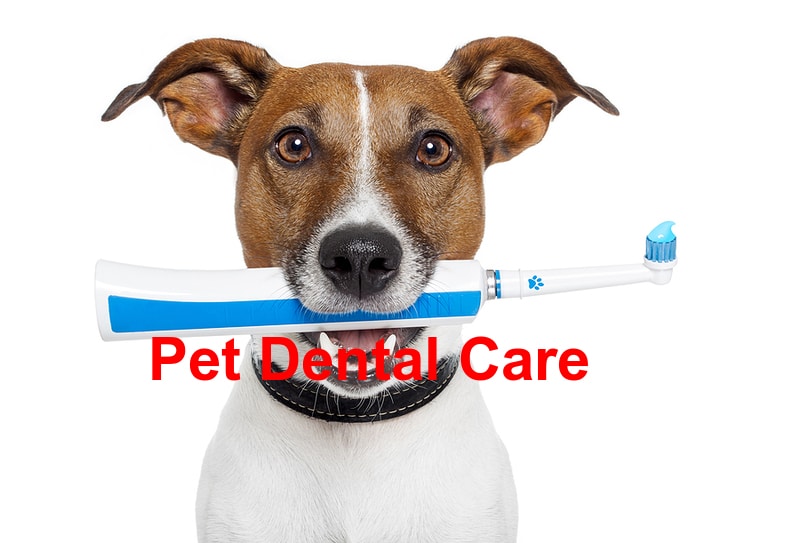Ensuring optimal dental health for your pet is a year-round commitment, and during Dental Health Awareness Month, it’s an opportune time to delve deeper into caring for their oral hygiene. Here’s an extensive guide with essential tips to maintain your furry companion’s dental well-being:
- Veterinary Dental Check-ups: Regular dental examinations by a veterinarian are fundamental. Schedule annual check-ups to evaluate your pet’s dental health comprehensively. These check-ups involve an oral examination, dental cleaning if required, and assessment for potential dental issues.
- Daily Toothbrushing Routine: Introducing a daily toothbrushing regimen is one of the most effective ways to prevent dental problems in pets. Acclimatize your pet to toothbrushing gradually. Start by allowing them to get familiar with the toothbrush and toothpaste. Use pet-specific toothpaste in flavors appealing to your pet, and use a soft-bristled toothbrush or finger brush designed for pets. Brush gently in circular motions focusing on the gum line and outer tooth surfaces.
- Dental-Friendly Diet: A balanced diet plays a crucial role in your pet’s dental health. Consider dental-specific diets or treats formulated to support oral hygiene. These specialized diets often contain components that aid in reducing tartar buildup and promote healthier teeth and gums.
- Avoid Harmful Foods: Just like in humans, certain foods can contribute to dental problems in pets. Avoid feeding your pet foods high in sugars or carbohydrates, as these can lead to plaque formation and dental issues. Additionally, refrain from giving them bones that can splinter and harm their teeth or cause choking hazards.
- Dental Chew Toys: Encourage chewing habits that benefit your pet’s dental health. Dental chew toys or treats designed to promote teeth cleaning and gum massage aid in reducing tartar and plaque buildup. These toys provide mental stimulation and alleviate boredom while contributing to better dental health.
- Monitor Oral Health Signs: Regularly observe your pet’s mouth for any signs of dental problems. Bad breath, swollen or bleeding gums, loose teeth, difficulty eating, or changes in behavior such as pawing at the mouth could indicate dental issues. Immediate veterinary attention is necessary if any of these signs appear.
- Professional Dental Cleanings: Veterinarians recommend professional dental cleanings as part of your pet’s dental care routine. These cleanings involve scaling to remove tartar and plaque, polishing to smoothen tooth surfaces, and sometimes extractions or treatments if dental issues are detected. Follow your vet’s advice regarding the frequency of these cleanings, as it varies based on individual pet needs.
- Introduce Dental Care Gradually: Patience is key when introducing dental care practices to your pet. Gradual introduction allows your pet to become accustomed to the process, making it less stressful. Start by gently handling their mouth, touching their teeth and gums, and slowly progressing to toothbrushing. Use positive reinforcement such as treats or praise to create a positive association with dental care.
- Approved Dental Treats: Dental treats or chews recommended by veterinarians help maintain your pet’s dental hygiene between cleanings. Look for treats specifically designed to support dental health, as they are formulated to help reduce plaque and tartar.
- Dental Gels or Sprays: Dental gels or sprays formulated for pets aid in oral hygiene maintenance. These products help control plaque and bacteria buildup in your pet’s mouth, contributing to fresher breath and better dental health.
- Consistency and Encouragement: Consistency is key in maintaining your pet’s dental health. Ensure regularity in dental care routines, whether it’s toothbrushing, providing dental treats, or using oral gels or sprays. Encourage positive behavior during oral care sessions by offering praise or rewards, making the experience more enjoyable for your pet.
- Regular Observations and Adjustments: Stay vigilant and observant about your pet’s oral health. Regularly check their mouth for any changes, and if you notice any abnormalities or signs of dental issues, consult your veterinarian promptly. Make adjustments to their dental care routine based on your pet’s needs and any recommendations from the vet.
Caring for your pet’s dental health demands consistent effort and attention. These practices can significantly contribute to your furry friend’s overall well-being, ensuring they have a healthy mouth and a happy life. Remember, good dental health leads to improved overall health, longevity, and a more comfortable and enjoyable life for your beloved pet.
References: BeChewy, Catamazing

